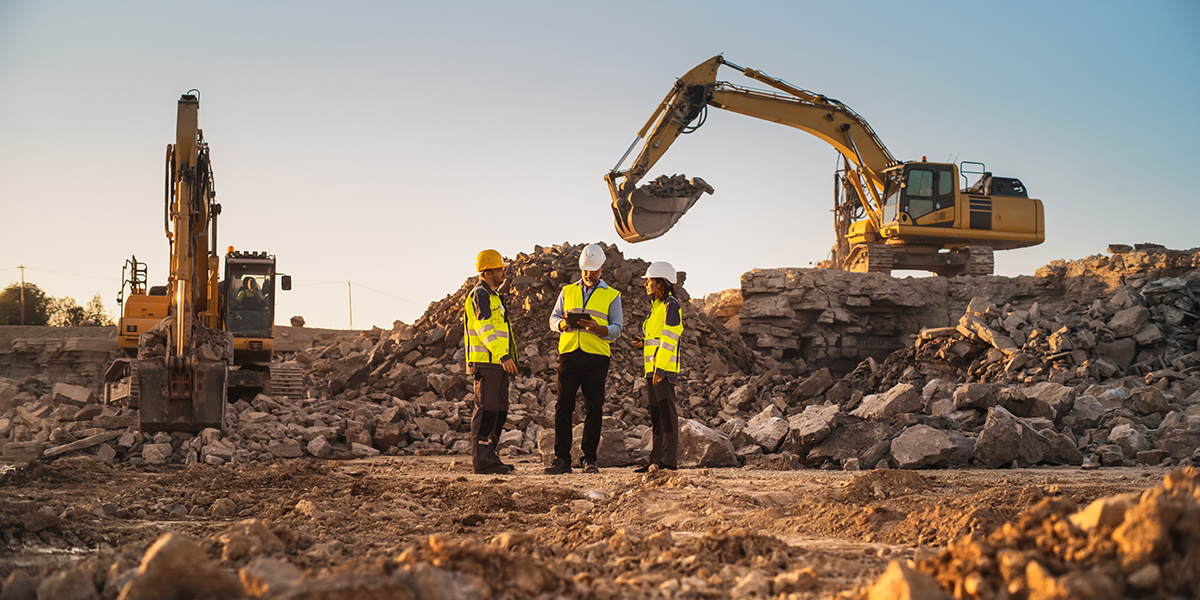In construction, success is measured by a project’s ability to meet deadlines, stay within budget, and deliver safe, high-quality results. While many factors contribute to this outcome—skilled labor, strong planning, and effective management—one crucial element often overlooked is the role of the equipment supplier. A construction equipment supplier is more than just a provider of machines; they are a key partner whose reliability, expertise, and services can make or break a project. Many contractors rely on construction equipment rental from trusted suppliers to stay flexible, ensuring they have the right machinery for each phase of a project without overspending on ownership costs.
Providing Reliable Equipment For Critical Tasks
Every construction site relies on equipment to move materials, shape landscapes, and bring designs to life. From excavators and loaders to cranes and compactors, machinery drives efficiency and productivity. A dependable supplier ensures this equipment is in excellent condition, serviced regularly, and ready to perform.
Projects that rely on unreliable suppliers face risks such as breakdowns, costly repairs, or delays in delivery. A trusted supplier eliminates these challenges by guaranteeing quality equipment, allowing contractors to focus on progress rather than troubleshooting. Reliable machinery directly translates to smoother workflows and successful project execution.
Ensuring Timely Deliveries
Construction schedules are tightly interlinked. A delay in one task often impacts several others, creating a domino effect across the project timeline. Equipment availability is one of the most common bottlenecks. A good supplier understands the importance of timing and ensures that equipment arrives when needed.
Through efficient logistics and inventory management, suppliers reduce downtime and keep projects on track. By delivering machines to the site on schedule, they help maintain momentum and prevent costly disruptions that could affect the entire project.
Offering Tailored Solutions For Different Projects
No two construction projects are identical. A residential build requires different tools than a highway expansion or a commercial skyscraper. A skilled equipment supplier recognizes these differences and offers tailored solutions to match specific project requirements.
For example, urban projects may need compact equipment to operate in tight spaces, while large-scale infrastructure developments demand heavy-duty machinery. By advising contractors on the most appropriate equipment, suppliers ensure projects are executed with the right tools for the job. This customization plays a vital role in achieving both efficiency and success.
Offering Technical Assistance And Knowledge
The role of a construction equipment supplier extends beyond delivering machines. Many suppliers employ experts who understand the capabilities of their equipment and can advise contractors on proper usage. This technical guidance helps maximize efficiency while ensuring safety on-site.
Additionally, many suppliers provide operator training or technical support. Whether troubleshooting an unexpected issue or optimizing machine performance, this assistance ensures that projects stay on course without unnecessary delays. Having experts just a phone call away gives contractors the confidence to tackle challenges head-on.
Supporting Budget Control
Project success isn’t just about finishing on time—it’s also about staying within budget. Equipment can represent a significant portion of construction costs. A reliable supplier helps contractors manage these expenses by offering fair rental agreements, transparent pricing, and options for short-term or long-term use.
By aligning equipment supply with project demands, suppliers help contractors avoid overspending on machinery they don’t need. This financial flexibility frees up resources for other aspects of the project, ensuring budgets remain balanced without compromising quality.
Creating Long-Term Collaborations
The best equipment suppliers don’t view their role as transactional. Instead, they aim to build lasting partnerships with contractors. Over time, these relationships create mutual trust, smoother procurement processes, and priority service for repeat clients.
For contractors, this partnership means more than convenience—it’s a strategic advantage. Having a supplier who understands the company’s work style, preferences, and project history allows for seamless collaboration. This alignment reduces administrative overhead and helps projects run with greater consistency and success.
Contributing To Safety And Compliance
Safety is central to project success, and equipment plays a significant role in maintaining it. Reputable suppliers adhere to industry standards and safety regulations, ensuring every machine delivered meets compliance requirements. They also provide documentation, certifications, and maintenance records that contractors can present during inspections.
This dedication to safety shields contractors from legal or regulatory repercussions, in addition to lowering the chance of accidents. With safer worksites, projects achieve better outcomes and stronger reputations.
Conclusion
The role of a construction equipment supplier extends far beyond delivering machinery. They are partners in success, ensuring reliable equipment, timely delivery, tailored solutions, technical support, budget control, and safety compliance. By building strong relationships and aligning with project needs, suppliers directly influence whether construction projects succeed or stumble.


